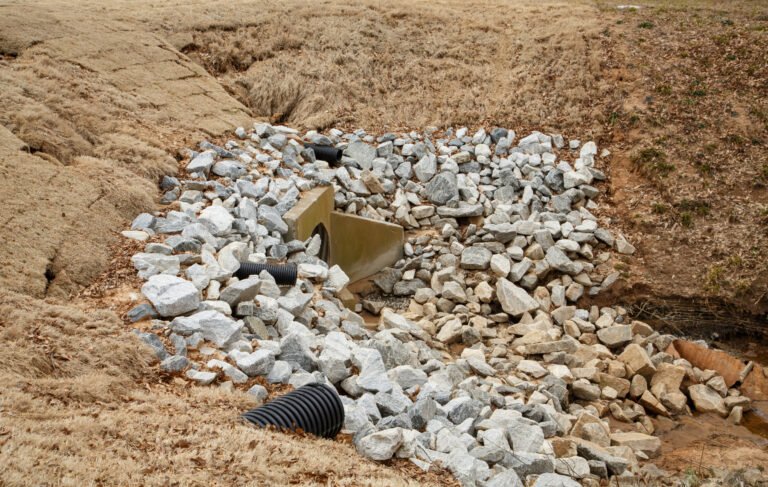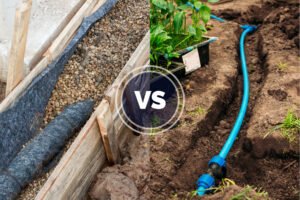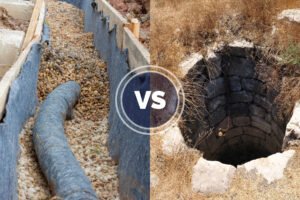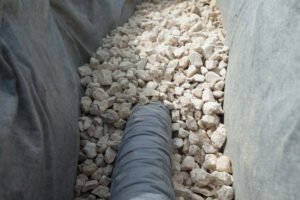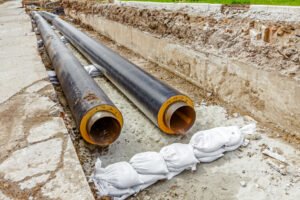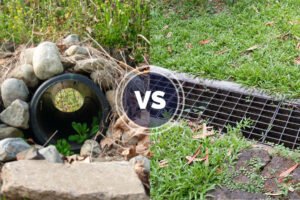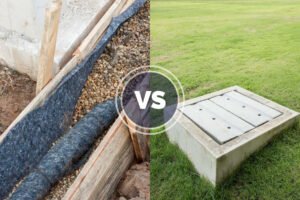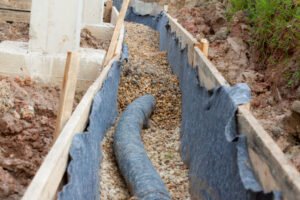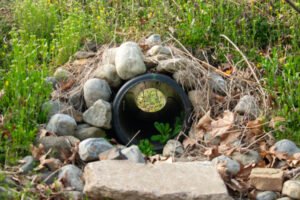One of the best things about a french drain system is that it absorbs the excess water through its gravel. But do you know that the wrong rock can flood your pipe and redirect the water back to the house? And of course! Smaller-sized gravel doesn’t support the french drain pipe and may crush under its weight.
So what is the best rock for french drain? Or can you use any regular river rock? If yes, can you top it with grass for a better landscape? Well, relax! We have solved all your french drain gravel questions and curated a checklist to help you with your french drain installation.
Any 1-1½ -inch hard stone like granite, washed, or river rock with wider gaps and high permeability is the best rock for a french drain. However, avoid using softer stones like lime, marble, or pea gravel that might break with heavy water flow and clog the drain pipe.
Which Stone Can You Use to Install French Drain?
You can use any hard drain rock or river stone around your perforated pipe, but you’ll need a different stone to support grass or any exposed trench. So, let’s analyze the types of gravel for each use and dig into their pros and cons for better understanding.
1. River Stone
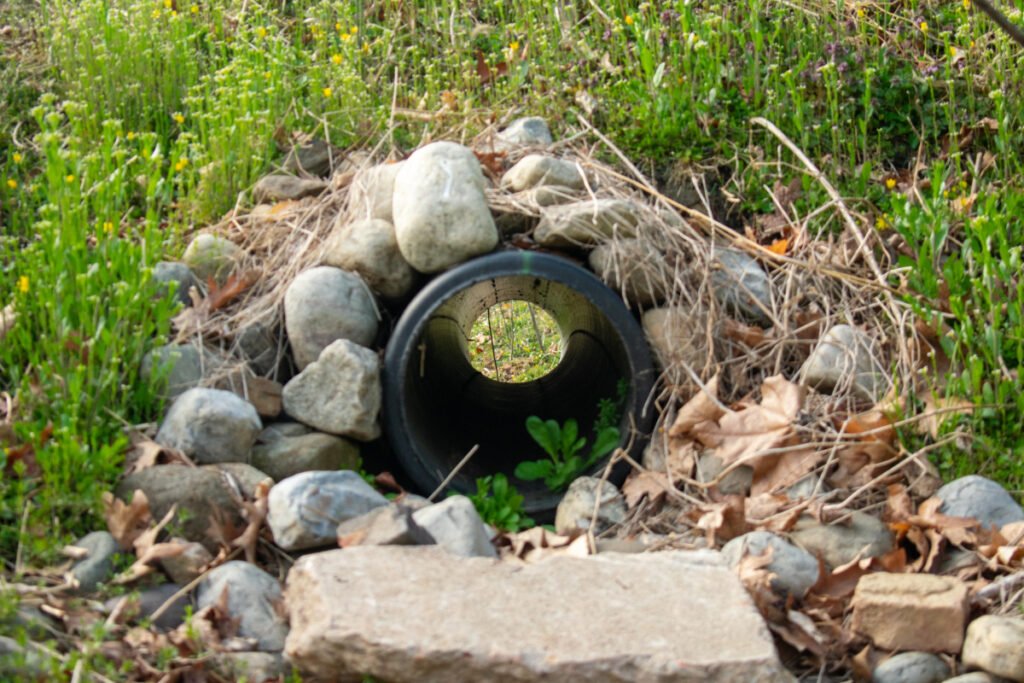
What Is It: River stone is the naturally rounded and polished rock found along streams, riverbeds, creeks, and shores.
River rocks are strong stones that support a deeper or high-flow french drain trench. They are effective yard drainage tools with a high water capacity that prevents flooding and water seepage near your foundations. Plus, they even hold grass and prevent its roots from seeping down and clogging the perforated pipe.
Overall, river gravel is firm, attractive, and efficient. So, you can use it as a bottom and top layer without any treatment. But make sure to edge it with brick or concrete to help it stay in place.
Best Used For: French drains in landscaped areas, lawns, and bog gardens
| Average Size | 1 – 1½ inch |
| Average Weight | 3000 pounds / cu. yard |
| Rough Cost | $130 – 900 per ton |
Pros:
- Attractive and Natural
- Long-lasting and Durable
- Suitable for both bottom and top layers
- Naturally filters the water and prevents sediment
- Supports the drainage pipe efficiently
Cons:
- Expensive
- Might move with heavy water flow
- Puts excess pressure on the retaining wall
River gravel is extremely heavy. So, place it cautiously and slowly on the drain pipe to prevent breakage and further drainage problems.
2. Item #4 Gravel
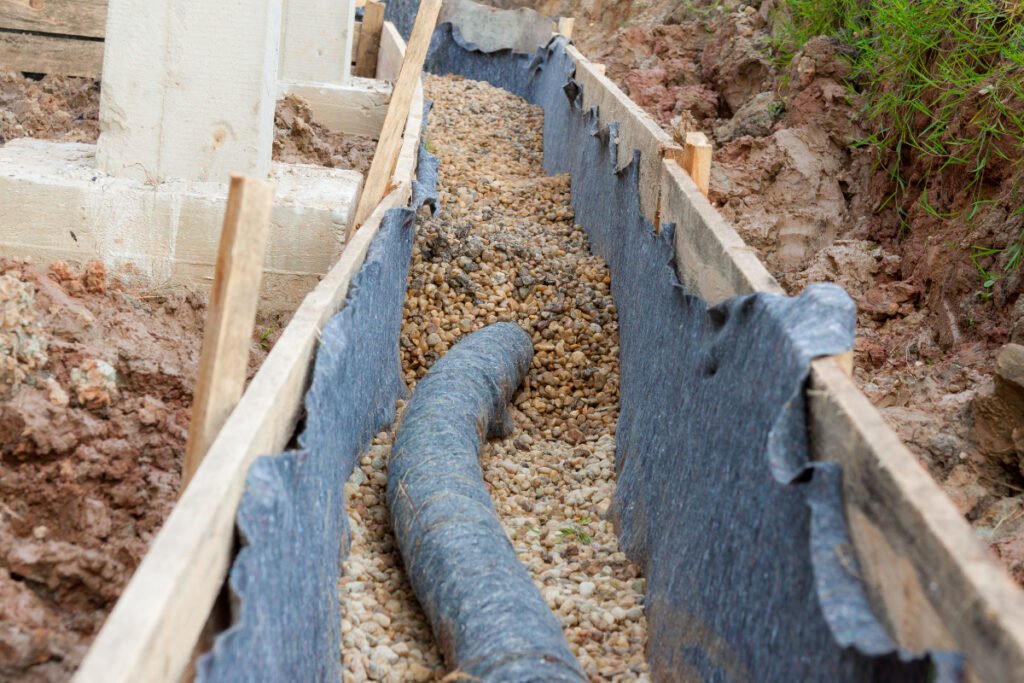
What Is It: #4 gravel is large-sized base gravel made up of brick chips, crushed stone, concrete particles, and regular gray gravel.
#4 gravel is a stone that can prevent water seepage near a cobbled pathway, patio, or retaining wall. It has wider gaps and high permeability that promotes surface water flow but traps soil and prevents erosion. Additionally, it doesn’t chip, crack or expand due to temperature fluctuations.
However, #4 gravel is very coarse, angular, and rough. So, don’t forget to add a non-woven landscape fabric to distribute its weight and protect the perforated pipe. And complete it with some paving or sand coat for better finishing and drainage.
Best Used For: French drains along pathways, patios, and parking lots
| Average Size | 1 – 2½ inch |
| Average Weight | 1800 pounds / cu. yard |
| Rough Cost | $10 – 50 per ton |
Pros:
- Various materials and colors
- Large size and wider gaps
- High water flow and filtration
- Recyclable and Sustainable
Cons:
- Crude and unaesthetic
- Difficult to clean
- Rough, angular sides that might damage the pipe
You can use a small weed or grass layer to level the uneven gravel layer or tamp it down with a tamper rod or machine.
3. Base Gravel
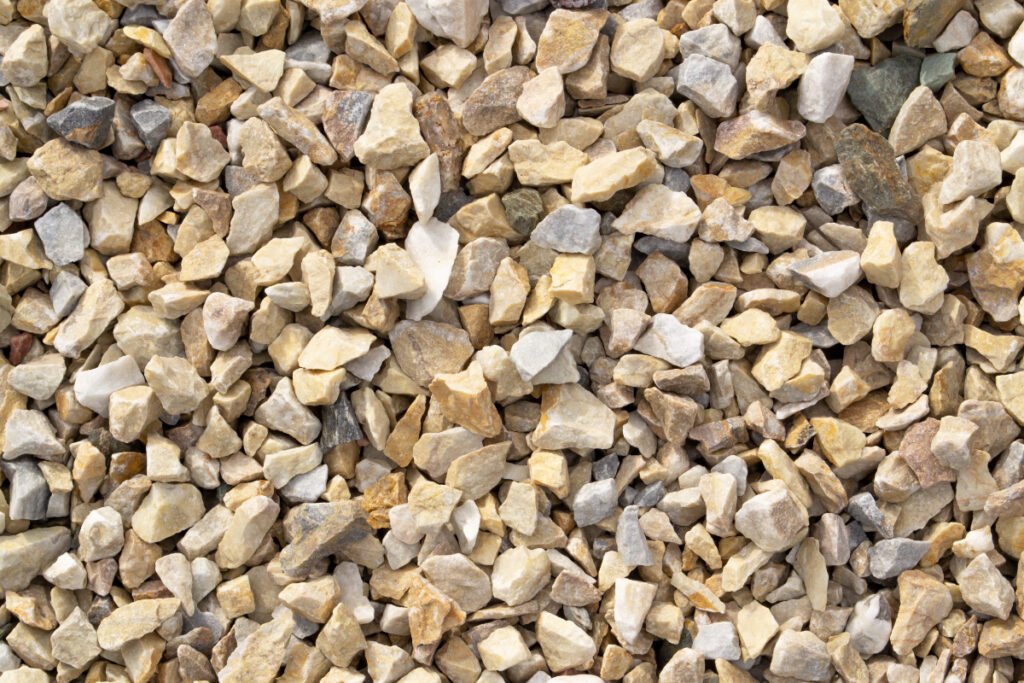
What Is It: Base gravel is a quarry crushed stone or granular base material of granite, sedimentary rocks, or any local American stone.
Base gravel is a wonderful bottom layer stone for any french drain system. It is sturdy and has larger gaps that let out the excess water to the surrounding soil and prevent flooding and standing water in the drain pipe. Moreover, it doesn’t move easily, supports the pipe, and prevents clogging due to dirt infiltration.
However, base gravel is not aesthetic and cannot be used for landscaping, especially in residential backyards. Plus, it doesn’t support grass or vegetation on the top and needs a drainage fabric to maintain its water flow.
Best Used For: French drains along a driveway, pathway, catch basin, or a perimeter drain
| Average Size | 2 – 2½ inch |
| Average Weight | 2400 pounds / cu. yard |
| Rough Cost | $30 – 40 per ton |
Pros:
- Large and Sturdy
- High water flow
- Affordable and long-lasting
- Supports vehicular traffic and vibrations
Cons:
- Unaesthetic and cannot be used at the top
- Might weather with continuous rain
- Doesn’t support grass and landscape
Grade your base gravel packing with a grade blade at least twice a year to remove the trapped debris and maintain proper drainage and water flow.
Comparing the Best Rocks for French Drainage System
| Parameter | River Rock | #4 Gravel | Base Gravel |
| Application | Lawns, Gardens | Pathways, Patios, Parkings | Driveways |
| Weather Resistance | High | High | Moderate |
| Drainage Speed | High | Moderate | High |
| Weight | Heavy | Lightweight | Moderately heavy |
| Cost | Expensive | Affordable | Affordable |
| Ease of Cleaning | Easy | Difficult | Difficult |
Which Stone Should Not Be Used for a French Drain?
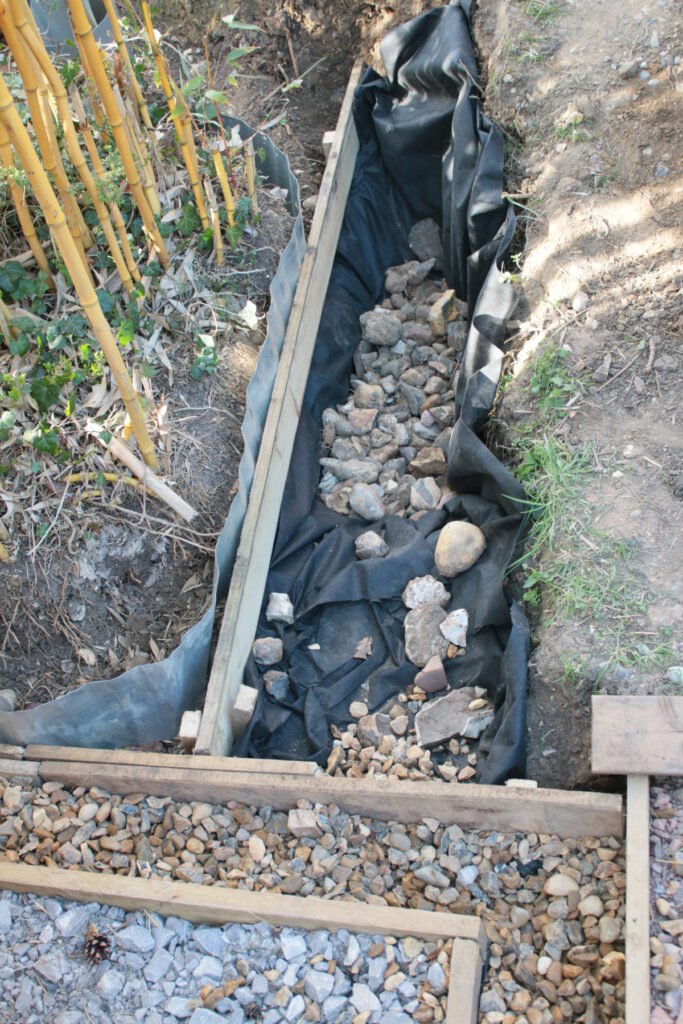
While most of the river gravel provides proper drainage and discharge to the french ditch, some softer and smaller rocks weather with water damage, disrupt the surrounding soil and clog the perforated drain pipe. But, what are these rocks? Let’s find out below.
- Pea Gravel: Pea gravel is tiny and smooth. So, it doesn’t stay in place and might settle at the bottom of the trench, enter the pipe, and reduce the overall water flow. Instead, you can use pea gravel as the top layer of the trench for better aesthetics.
- Crushed Stone: Crushed stone has excellent drainage properties but does not stay in place and pressurizes the perforated PVC pipe. And, it doesn’t filter the debris and might deposit all the excess sediment in the drain pipe. So, limiting it to a trench drain or rock drain is best.
- Shore Gravel: Shore gravel is small, smooth, and vulnerable to moss and mildew growth over time. Plus, it’s difficult to clean and doesn’t support the french drain pipe. Hence, use them for pipe-less trench drains or similar french drain alternatives.
- Marble Chips: Marble chips are brittle and might chip off with heavy rain or water flow. Moreover, they stain easily and have a poor drainage speed that might cause flooding and sogging.
What Size Gravel Is Best for Drainage?
1-1½-inch rock is the best for drainage as it has wider gaps and crevices that hold the soil but filter the excess water to the french ditch. Moreover, larger rocks may chip and clog the pipe, whereas smaller rocks might slide and disorient the french drain slope.
Which Stone Is Best to Support Grass Covers?
Moderately sized river rock or a top layer of regular gray gravel holds onto the existing grass and provides adequate sediment and moisture that accelerates its growth further. Or, you can add a layer of sand or dirt on top of the french drain to support grass covers.
Always use a rubble drain fabric sleeve, sock, or non-woven drainage fabric to line the trench and prevent the grassroots from seeping inside the pipe.
Which Stone Is Best for Drains Along Driveways?
Base gravel is great for a french drain under a driveway, but #4 gravel is better for drains along the driveway. Base gravel holds the weight of heavier vehicles, trucks, and bikes, whereas #4 gravel prevents water seepage along the driveways and keeps them dry.
Tips to Pick the Best Rock for a French Drain System:
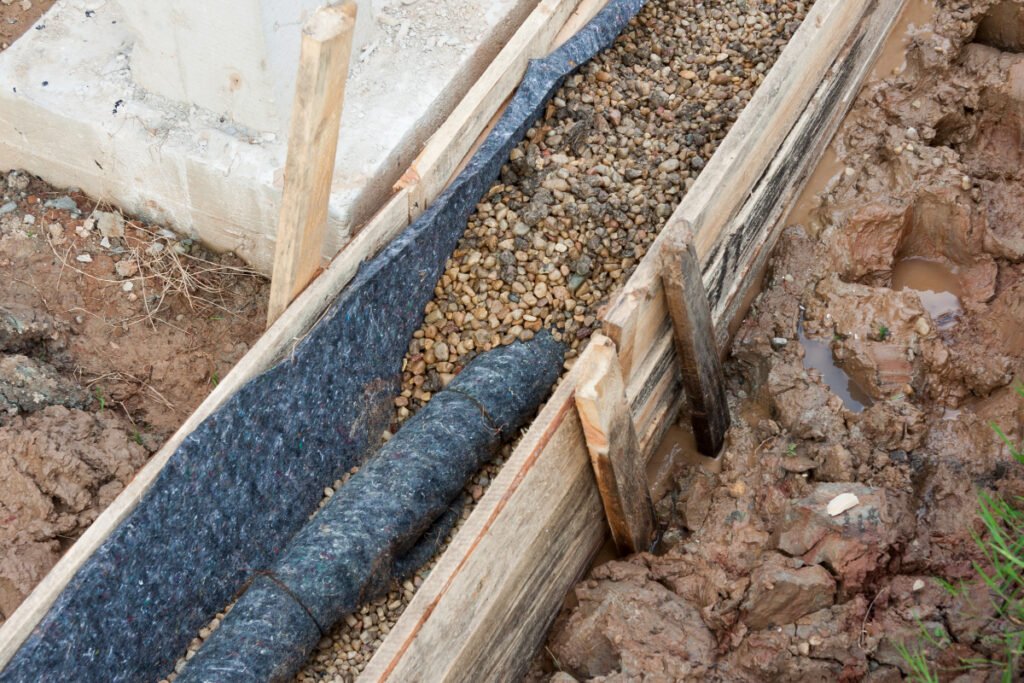
- Pick larger 2-inch gravel for the bottom layer, 1-1 ½ inch gravel for the mid layer, and top it off with sand or pea gravel for proper drainage.
- Use regular river stone or bedrock in a french drain if you plan to connect your french drain to a catchbasin. Check more details for french drain vs catch basin here.
- Limit fancy marble and quartz gravel to the top layer as these might chip, clog the pipe and create a bigger drainage issue.
- Add a few inches to your existing trench once every 2-3 years for better strength and stability.
How Much Stone Should You Use in a French Drain?
You should use at least 0.7 – 0.8feet of gravel per foot for larger 10-12 inch pipes, while you can use about 0.5feet of gravel for a regular 8-inch pipe. Alternately, you’ll need a 0.6-inch thick gravel layer for a hidden french drain or blind drain.
Is Limestone Gravel Good for Landscape Drainage?
No, limestone gravel isn’t ideal for a french or rock drain as it is highly porous and chips and breaks with heavy water flow. Plus, it absorbs a lot of water and may aggravate your drainage problem.
Is Bigger Gravel Better for Drainage?
Yes, larger 1-½ to 2-inch gravel is the best for drainage as it has wider gaps and jarred edges that allow the water to flow smoothly. However, 5-6 inch rocks aren’t ideal for drainage as they might chip, clog the trench, or add more weight on the pipe.
How Much Gravel Do I Need for a 50-Foot French Drain?
You’ll need about 200-250 cubic feet of gravel for a regular 8-inch deep french drain, but you might need up to1000 cubic feet if you have deeper basement drains and sumps.
The right type and gravel size help optimal function in any french drain system. While you’ll need to use different rocks for the lawn and driveway drains, you must also compact them for a better drainage solution. Further, you can top these with attractive sand or quartz gravel for better landscape visuals and aesthetics.
And we have discussed what rock to use and avoid above. So, pick the best rock for your drain-location, compact the trench, and you are done! But, french drain installation isn’t as easy as it seems and needs precision. So, don’t forget to check our guide on ‘Common french drain mistakes’ to save double-work!

